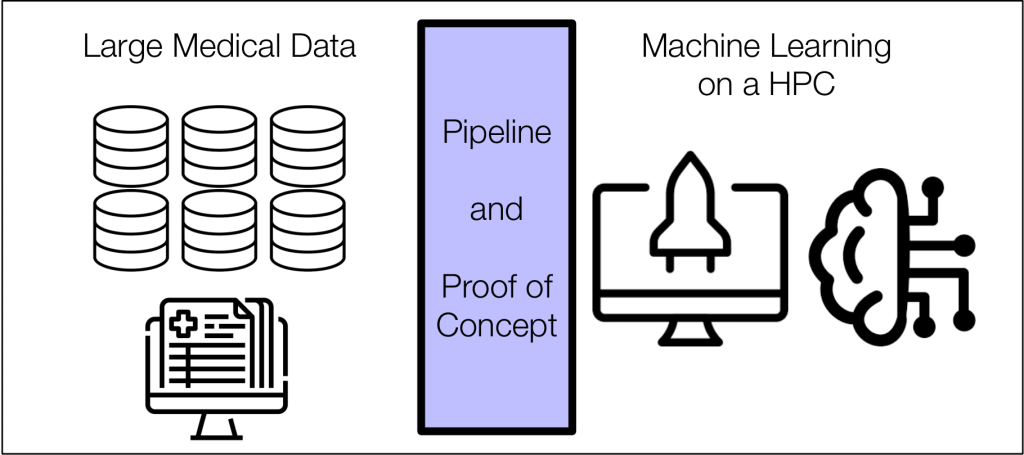Novel Paradigms for Machine Learning in Medicine

| Time | 2023 — 2024 |
| Funding | Unibe IDGrant |
| Researchers | Aylin Tastan, Kaspar Riesen |
Abstract:
The overarching goal of the planned project1 is to research novel state-of-the-art algorithms in digital medicine using techniques from artificial intelligence and machine learning. In particular, we plan to develop algorithmic solutions and computational frameworks that can help practitioners analyze medical data from multiple sources to identify diseases, decide on the next step of treatment, determine potential problems, and improve the overall efficiency of care.
Actually, hospitals all over the world started collecting large amounts of data. This data typically comprise patient, laboratory, pathological, epidemiological, or medication data as well as medical imaging and unstructured text data (e.g. diagnostic, transfer, or discharge reports). With its Insel Data Science Center (IDSC ) the Inselspital Bern has also established a central hub for all data science related tasks – including the Insel Data Platform (IDP) as a data collection, preprocessing, and delivery platform.
Based on IDP, we plan to explore an integrated algorithmic framework capable of automatically learning possible diagnoses for multiple diseases and co-morbidities at once. Moreover, we aim at building and researching novel frameworks that allow practitioners to interact, challenge, and query the learned models in an adequate manner. The overall goal of this interaction is to cement the trust in the use of machine learning algorithms as well as to improve the precision of the derived diagnoses. It is our main hypothesis that this might readily lead to new gold-standards and novel perspectives on machine learning in digital medicine with the potential to initiate the next era in supporting systems for clinical decisions.
The planned principal project is both ambitious and interdisciplinary as it brings together computer science (especially artificial intelligence and machine learning) and medicine (especially clinical diagnos- tics). Therefore, one group leader from the Institute of Computer Science from the University of Bern and a Professor from the Inselspital Bern have joined forces to define and submit a solid principal application. The main objective of the present application is to grant a preparatory project for building the basis for the planned principal project and comprises the following three major tasks.
- Implementing a structural pilot with well-defined pipelines and procedures to share both data and infrastructure between the University and the Inselspital2.
- Building the foundation of a general framework for machine learning tools such that they become directly applicable to the respective datasets (and conduct preliminary empirical evaluations).
- Preparing a principal application for the Sinergia funding scheme of the SNSF.
The remainder of this application is organized in two main parts. First, in Section 1, we describe – as far as possible – the planned principal application. In particular, we review the current state of research in the field, identify relevant research gaps, propose a tentative list of research goals, and describe the interdisciplinary nature of the principal project. Next, in Section 2, we briefly outline the preliminary work and research that is planned to be carried out within the present project. In particular, we determine which tasks of the planned principal project can in part be addressed or prepared in the present project. Moreover, we provide a time schedule as well as a list of milestones for the project. Last but not least, we justify the proposed project by elaborating on its relevance, importance, and impact.
